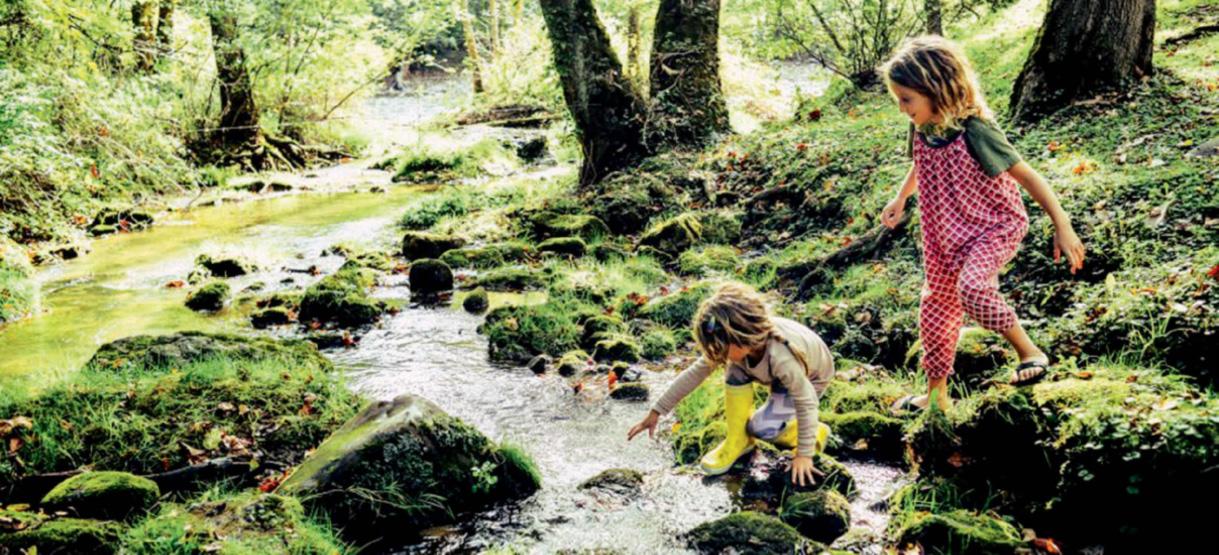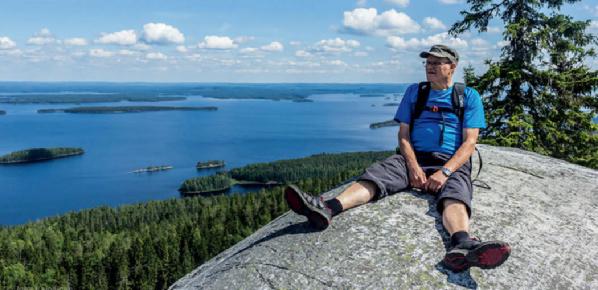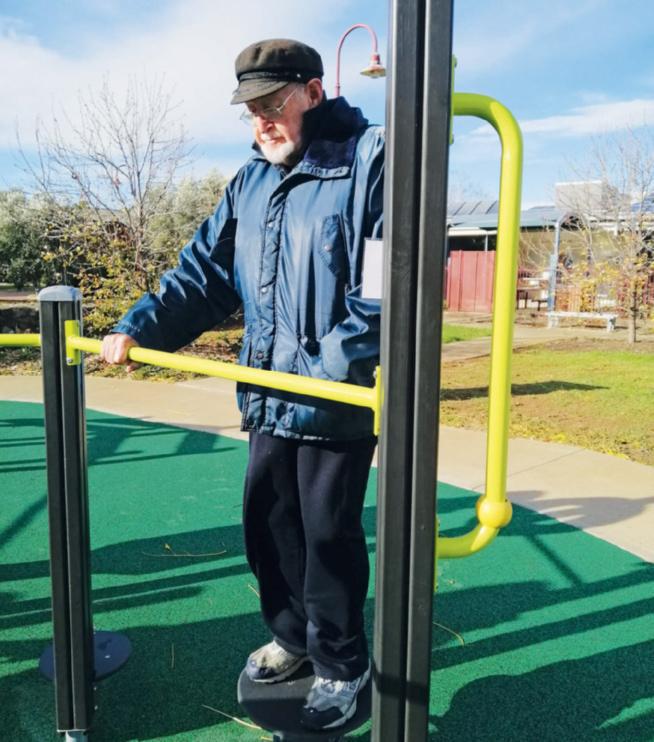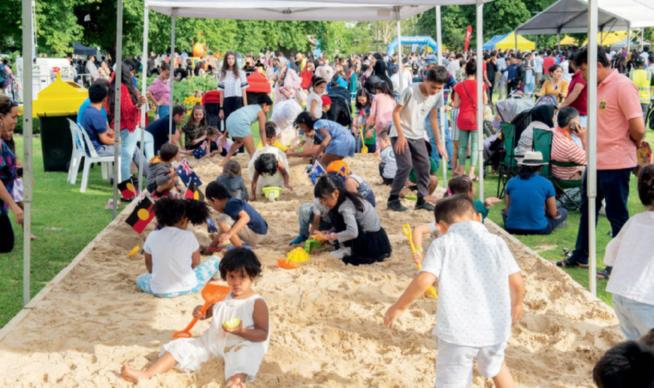
7 minute read
Sustainability and Innovation Leisure and the Unconditional
Far left: Eleanor Rosevelt Below: Leisure: The Basis of Culture (book cover) Left: Sheep drafting stamp
LEISURE AND THE
UNCONDITIONAL BASIC INCOME
WORDS SHAUN CAVANAGH
Allow me to preface this article with a description of the image of the New Zealand postage stamp depicting sheep drafting above. This resembles our capacity for attention and memory. In this metaphor, the sheep represent external stimuli (ie. media) that need sorting. The gate represents attention that determines how sorting occurs and the manner in which our beliefs are formed. The use of this image attempts to describe the plurality of content on Basic Income and approaches to leisure, and to acknowledge this image as a form of regulation that selects and directs content.
Basic Income is being discussed more frequently, especially in the Covid-19 era. It is often described as UBI, with the U standing for Universal and/or Unconditional. Some prefer the term Basic Income. The relationship of leisure to Basic Income is worth exploring on the premise that implementation of Basic Income in New Zealand is likely to give New Zealanders greater access to leisure, which is an important goal of recreation therapy as a profession.
The context for this article is that 14-20 September is Basic Income week1, with various international events happening under the tagline Freedom to Choose. September 17 saw the announcement of New Zealand being offi cially in recession, with a 12.2 percent drop in GDP (June quarter) following our lockdown from March 26 this year, and a forecast of 280,000 unemployed New Zealanders by 20222 .
Also worth noting is that the 2020 Basic Income Earth Network (BIEN) Congress was to be held in Brisbane from 28-30 September, but was cancelled due to Covid-193. At the time of writing, I had just participated in a World Leisure Organisation (WLO) webinar on the topic of Human Rights and Leisure: the WLO Charter for Leisure, to inform participants about important updates and changes to the Charter in line with emerging social and global issues4 .
Several books on Basic Income have been produced in recent years, including The Precariat Charter5 , Utopia for Realists6 , Basic Income: And How We can Make it Happen7 , Give People Money8 , The War on Normal People9 , and Basic Income: A Radical Proposal for a Free Society and a Sane Economy10 . Basic Income has also been addressed by New Zealand authors: The Big Kahuna11 , Pennies from Heaven12, and The New Zealand Project13. It is a challenge to do justice to all with a single article, although valuable patterns and similarities can be observed among their writings.
The main focus of this article is to investigate how authors treat leisure as a concept. Both leisure and Basic Income can be regarded as amorphous concepts, and require workable defi nitions. It is observed that leisure is frequently referred to in terms of time use, although some authors (Standing, Bregman, Van Parijs and Vanderborght) discuss leisure indepth, either through the historical fi gures who’ve contributed to discussion, or providing examples of how leisure and recreation have gained through government intervention. The impact of automation and artifi cial intelligence on the future of work is a focus for Andrew Yang9. The WLO webinar covered French sociologist Joff re Dumazadier’s (1974) approach to leisure, revised to include personal development and self-realisation in the manner of Aristotelian thought.
Basic Income is defi ned as “a modest amount of money paid unconditionally to individuals on a regular basis.”7 Paid as a dividend to citizens of a given area, it is distinct from the associated term of a Guaranteed Minimum Income (GMI). Descriptors of Basic Income include “venture capital for the people”, “foundation” or “fl oor”, “dividend” and “the power to say no”. One perspective on leisure, paraphrasing Cicero (106-43 BC) is: “Leisure consists in all those virtuous activities by which one grows morally, intellectually, and spiritually. It is that which makes a life worth living.”14 Each concept has variations in how they are defi ned, though for the purpose of this article these defi nitions are useful.
A starting point is to realise that the passage and use of time is a central element of leisure, and this entails a lot of refl ection. This is an activity closely associated with a prominent author (Josef Pieper, 1952) and his book Leisure the Basis of Culture15, 16, 17. Leisure is a necessary component of producing an article like this through refl ection on diff erent forms of content. Readers will be aware of the expression, “Work is fascinating. I can sit and look at it for hours” — which many students will identify with. Our Recreation Therapy degree taught us that leisure is generally classifi ed in three ways: 1. Specifi c recreation activities; 2. Unobligated or
discretionary time; and 3. A state of mind.18 Pieper defi ned leisure as “a state of being necessary for a true vision of reality”15, 16 , which aligns closely with leisure as a state of mind (an example of the third defi nition). Maria Popova has summarised Pieper’s thought well in a Brain Pickings article17 .
In 2018, just a few weeks after receiving a post-graduate Diploma in Public Health, I attended the Wellbeing and Public Policy conference in Wellington. The theme anticipated the Government’s fi rst Wellbeing Budget, and the words of Amartya Sen’s capabilities theory were a common feature: “People leading lives they value and have reason to value.”19 The message taken from this phrase is that the enjoyment must be an inherent part of our regular activities.
There is a contemporary expression that rolls easily off the tongue about “work-life balance”, although it implies work and life carry the same value to our wellbeing when it is possible the expression is an example of false equivalence. Of course, people should gain fulfi lment from work. What I’m interested in is how we tend to think of leisure as free-time only without acknowledging its classical meaning.
Rutger Bregman6 conveys a similar thought when discussing prosperity and gains in technology: That UBI allows for
REFERENCES
1. Income Movement. Portland, Oregon. basicincomeweek.org 2. Tim Watkin (17 September). rnz.co.nz/programmes/ caucus/ story/2018764442/gulliver-s-electionand-is-labour-angling-to-govern-alone 3. Basic Income Earth Network. London. basicincome.org 4. World Leisure Organisation. worldleisure.org/ charter 5. Standing, G. (2014) A Precariat Charter: From
Denizens to Citizens. London: Bloomsbury Plc. 6. Bregman, R. (2017) Utopia for Realists. London:
Bloomsbury Plc. 7. Standing, G. (2017) Basic Income: And How We can
Make it Happen. London: Penguin. 8. Lowrey, A. (2018) Give People Money. London:
Penguin. 9. Yang, A. (2019) The War on Normal People. New
York: Hachette. 10. Van Parijs, P, Vanderborght, Y. (2017) Basic Income:
A Radical Proposal for a Free Society and a Sane
Economy. Cambridge: Harvard University Press. 11. Morgan, G, Guthrie, S. (2011) The Big Kahuna: Turning Tax and Welfare in New Zealand on its head. Auckland: Public Interest Publishing
Company Ltd. 12. Berentson-Shaw, J, Morgan, G. (2017) Pennies from
Heaven. Wellington: Public Interest Publishing. 13. Harris, M. (2017) The New Zealand Project.
Wellington: Bridget Williams Books Ltd. 14. quotefancy.com/quote/1037462/Marcus-Tullius-
Cicero-Leisure-consists-in-all-those-virtuousactivities-by-which-a-man 15. Pieper, J. (1952) Leisure, the basis of culture. New
York: Pantheon Books Inc 16. Lambert, C. (2010) Josef Pieper: Sisyphus and the
Defense of Leisure. vimeo.com/16982563 17. Popova, M. Brain Pickings. brainpickings.org/ 2015/08/10/leisure-the-basis-of-culturejosef-pieper 18. Datillo, J, and Murphy, W. (1991) Leisure
Education Program Planning. State College,
PA: Venture Publishing. 19. Dalziel, P. and Saunders, C. (2015) Wellbeing
Economics: Future Directions for New Zealand
Wellington: Bridget Williams Books Ltd. 20. Tihei Mauri Ora. maoridictionary.co.nz
a capacity of people to “spend time on things that genuinely matter to us” rather than remaining idle and doing nothing. The bold statement in Māori korero, “Tihei Mauri Ora!”, is spoken with belief and conviction. The translation20 of this statement indicates that the value of life will always transcend that of work. The popular contemporary expression work-life balance says something about commodifi cation of time and leisure for commercial ends, with leisure defi ned as free-time in relation to work. This article briefl y compares two related concepts that are defi ned and supported in varying ways. I am conscious of various contributions on both topics, but these are outside the scope of this article. The main focus is to make an initial attempt to account for how proponents of Basic Income conceptualise and value leisure. It is anticipated this will be an important area of study as the world adapts to the socioeconomic eff ects of Covid-19 and climate change, and a growth in automation and artifi cial intelligence.
LOCAL UNDERSTANDING, GLOBAL KNOWLEDGE, TRUSTED ADVICE
Otium Planning Group is a contemporary sport and leisure consultancy providing trusted advice to the sport, recreation and leisure industries in the following areas.
FACILITY PLANNING AND MANAGEMENT ADVICE
URBAN OPEN SPACE, SOCIAL INFRASTRUCTURE PLANNING
FEASIBILITY, BUSINESS CASE AND FUNDING STRATEGIC PLANNING FOR SPORT AND RECREATION EVENTS, TOURISM AND COMMERCIAL RECREATION
COMMUNITY ENGAGEMENT AND MARKET RESEARCH
To find out more please go to www.otiumplanning.com.au, call Head Office on (03) 9798 7300 or contact one of our offices via email: Brisbane qld@otiumplanning.com.au Melbourne vic@otiumplanning.com.au Cairns cairns@otiumplanning.com.au New Zealand nz@otiumplanning.co.nz Canberra act@otiumplanning.com.au Perth wa@otiumplanning.com.au Darwin nt@otiumplanning.com.au Sydney nsw@otiumplanning.com.au










